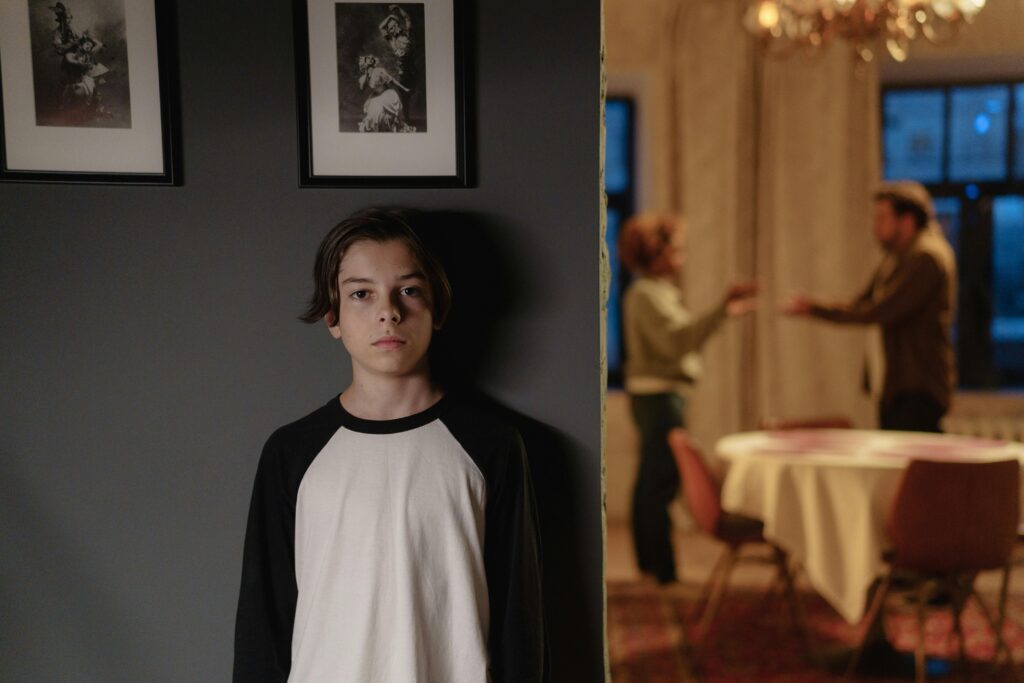Written by Sasha Kleinman, AMFT
Understanding Social Anxiety in Teens: A Therapist’s Guide for Parents
It’s normal for teens to get a little nervous before giving a class presentation or meeting someone new. But when those nerves become so intense that they start shaping everyday life, it might be more than just shyness. It could be social anxiety disorder. This kind of fear can quietly shrink a young person’s world, making even simple moments feel overwhelming.
How Social Anxiety Shows Up in Teens
Social anxiety is one of the most common mental health struggles teens face, but it’s often misunderstood. Teens who deal with it feel a constant fear of being judged or embarrassed. They might repeatedly review conversations in their heads, avoid making eye contact, or avoid social events because they’re so anxious about saying or doing the wrong thing. This isn’t about being stubborn or lacking confidence; instead, it’s a reaction deeply tied to how their nervous system responds to stress.
Why the Teen Years Are a Key Time for Social Anxiety
The teenage brain is wired for emotional highs, but the parts that help regulate fear are still developing. That imbalance can make social situations feel more intense. Combine that with school stress, peer pressure, and the constant comparisons on social media, and it’s easy to see why anxiety can take hold.
For some teens, being especially sensitive to rejection or having perfectionist tendencies can make experiences more challenging, turning regular social experiences into emotionally charged events.
Noticing the Red Flags
Parents are often the first to notice small changes. A teen who was once outgoing might seem withdrawn or avoid social situations altogether. They might complain of stomachaches before school, stay silent in class, or retreat to spending hours alone online.
Some common signs of social anxiety in teens include:
- Worrying about being judged or rejected
- Struggling to eat or speak in front of others
- Apologizing excessively or striving for perfection
- Low self-worth or frequent irritability
If these behaviors start getting in the way of daily life, it’s time to reach out for help from a mental health professional.
How Therapy Can Make a Difference
Cognitive Behavioral Therapy (CBT) is one of the best tools for treating social anxiety. It helps teens recognize and challenge negative thoughts, learn calming techniques, and slowly build confidence by facing fears in manageable steps. Group therapy can also help, offering a space where teens realize they’re not alone and can practice interacting in a supportive environment. As a therapist, I work with teens to break the cycle of anxious thoughts, build resilience, and reconnect with who they truly are. Parents are key partners in this process — showing calm, validating emotions, and cheering on progress instead of perfection.
Creating a Nurturing Home Space
Sometimes, the most minor shifts at home can make a huge difference. Like, just the way we respond when our teens open up. What I often tell parents is to respond and validate, rather than react. Try saying something like, “Wow, that sounds really hard,” instead of jumping in with, “You’ll be fine,” or “Here is what you should do instead”. It might feel simple, but starting with an invitation—letting your teen talk it out without rushing to fix it—can completely change how that moment goes. It’s not about solving the problem right away. It’s about helping them feel heard, not dismissed. And honestly? That goes a long way. Encouraging healthy routines that include good sleep, physical activity, and limited screen time to help teens stay in touch with themselves and the world around them, feeling more balanced and grounded. Above all, remind your teen that social anxiety can be treated. With consistent support, therapy, and patience, teens can learn to step into the world with more ease, confidence, and calm.

Sasha Kleinman is a dedicated Registered Associate Marriage and Family Therapist who works with individuals, couples, and families seeking support through trauma, grief, relationship challenges, anxiety, and feeling out of alignment with the world around them. Her approachable style helps clients feel at ease as they explore their emotional experiences and move toward healing. Sasha practices under the supervision of Silva Depanian, LMFT (MFC#121864). Sasha offers therapy sessions in person at the Sherman Oaks and Woodland Hills offices, as well as via telehealth throughout California.




